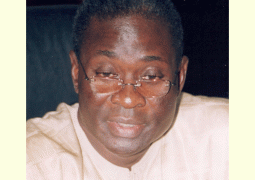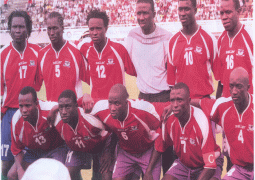The Pro poor Advocacy Group in close partnership with Centre for Competition, Investment and Economic Regulation who are presently implementing a two-year project, entitled "Strengthening constituencies for effective Regimes in Select African countries (7UP4)," last Friday held its second national reference meeting otherwise called NRG II, at the Seaview Garden Hotel.
The research phase of the project, which consists of perception survey of the general state of competition in The Gambia, a survey of sectoral regulator and operator in the seed, fertiliser and faming industries have just been completed.
The purpose of the meeting is to share the research findings on the state of competition in The Gambia, with a wider group of national stakeholders; evolve a national advocacy agenda and devise a plan as to how the national advocacy agenda is to be operationalised. The key priority issues were identified alongside key advocacy strategies for addressing each of them.
Speaking at the meeting, Mr. Omar Ousman Jobe, the Project Coordinator for 7UP4 informed the gathering that the 7UP4 concept has been around for sometime. He stated that "the Consumer Unity and Trust Society (CUTS International) has made competition policy and consumer protection issues its battle horse and has been spreading the good news around the world, taking a group of 7 countries at a time."
According to him, the Pro-Poor Advocacy Group (Pro-PAG) had participated in the launch meeting of this ambitious project, and signed a Memorandum of Understanding with CUTS in August 2008, to undertake a two-year project entitled "Strengthening Constituencies for Effective Competition Regimes in Select Western African Countries (7Up4 Project)." He further revealed that the project is three-fold.
"It seeks to document the state of competition in The Gambia through literature review and questionnaire based researches. On the strength of the evidence obtained, advocacy campaigns will be undertaken with a view to promoting a viable competition culture that delivers maximum utility and value to consumers," he said, adding that national stakeholder will also benefit from capacity-building interventions.
According to Mr. Jobe, the research findings found out that there is a general lack of awareness of existence of competition laws among respondents from the business sector of The Gambia. The existence of regulatory authorities, he added, is however generally known.
"The general perception that competition issues are not well understood in the economy and lack of sensitisation campaigns is cited as a contributory factor to that low level of awareness," he noted.
For his part, representative of CUTS International India, Mr. Cornelius Dube said the overall purpose of the 7UP4 project is to develop the capacity of multiple stakeholders in select countries in
He noted that the unique feature of the project is the involvement of civil society representative as pioneers to take the debate on the need for an effective competition regime up to the policy-makers, through a bottom up advocacy process.



